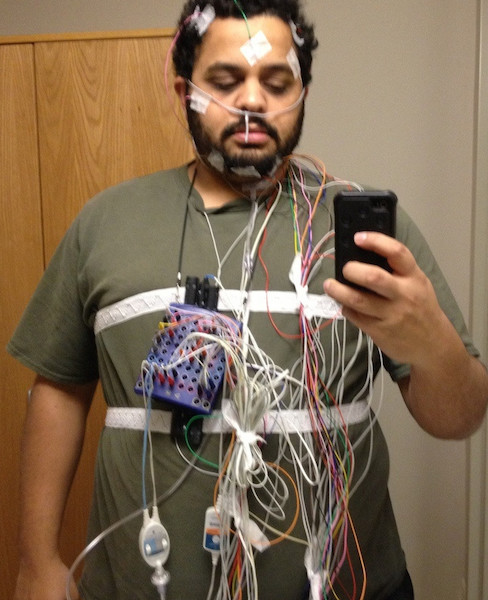 Most people are aware when they have obstructive sleep apnea. You may find yourself waking in the night, or may feel unusually tired during the day. You might have even been told by your partner that you often cease breathing momentarily in the night, or appear to struggle for breath.
Most people are aware when they have obstructive sleep apnea. You may find yourself waking in the night, or may feel unusually tired during the day. You might have even been told by your partner that you often cease breathing momentarily in the night, or appear to struggle for breath.
However, whilst many are aware that they suffer with OSA to some degree, they’re less often aware of how severe their condition is. In order to ascertain whether sleep apnea is mild, moderate or severe, further tests are likely to be required.
Sleep Studies: The Benefits?
When you visit a sleep apnea specialist about your condition, it’s possible that they may recommend a sleep study, in order to gain better insight into the exact nature of the problem.
A sleep study can assess how your body responds when in a state of sleep; and in turn, can help doctors to identify whether or not you have sleep apnea, and if so, how severe the problem is. This, in turn, can help when it comes to identifying the right treatment for you.
Types of Sleep Study
There are many different types of sleep study. These include:
- Portable monitor (home-based).
A portable monitor is used at home, and records information relating to the flow of air whilst you breathe, your chest movement, levels of oxygen in the blood and your blood rate. This type of diagnosis is only suitable for certain people.
- Polysomnogram
A polysomnogram involves an overnight stay at a specialist sleep centre. It will record a number of aspects about your sleeping; including oxygen levels, chest movement, snoring and flow of air. It may also record your eye movements and brain activity.
A polysomnogram is not only useful for determining the nature of your sleep-related problem, but also for identifying the right type of treatment for you.
- Multiple Sleep Latency Test
The multiple sleep latency test is performed during the daytime, and assesses how tired you are. Normally, it’s done straight after a polysomnogram. The test records your brain activity, and takes place over the course of the entire day. If you fall asleep during the test, it monitors both REM and non-REM stages of sleep.
- Maintenance of Wakefulness Test
This sleep study also takes place during the day, and assesses how well you are able to stay awake and alert. Again, it is normally carried out straight after a polysomnogram. This test is useful in terms of determining whether or not your ability to stay awake is a safety concern (for yourself and for others).
Do You Need a Sleep Study?
If you suspect that you may benefit from a sleep study or other form of testing, the first thing to do is arrange a consultation with a qualified sleep apnea specialist. To find out more, call the Blackstone Medical Services team at 888-710-2727.

